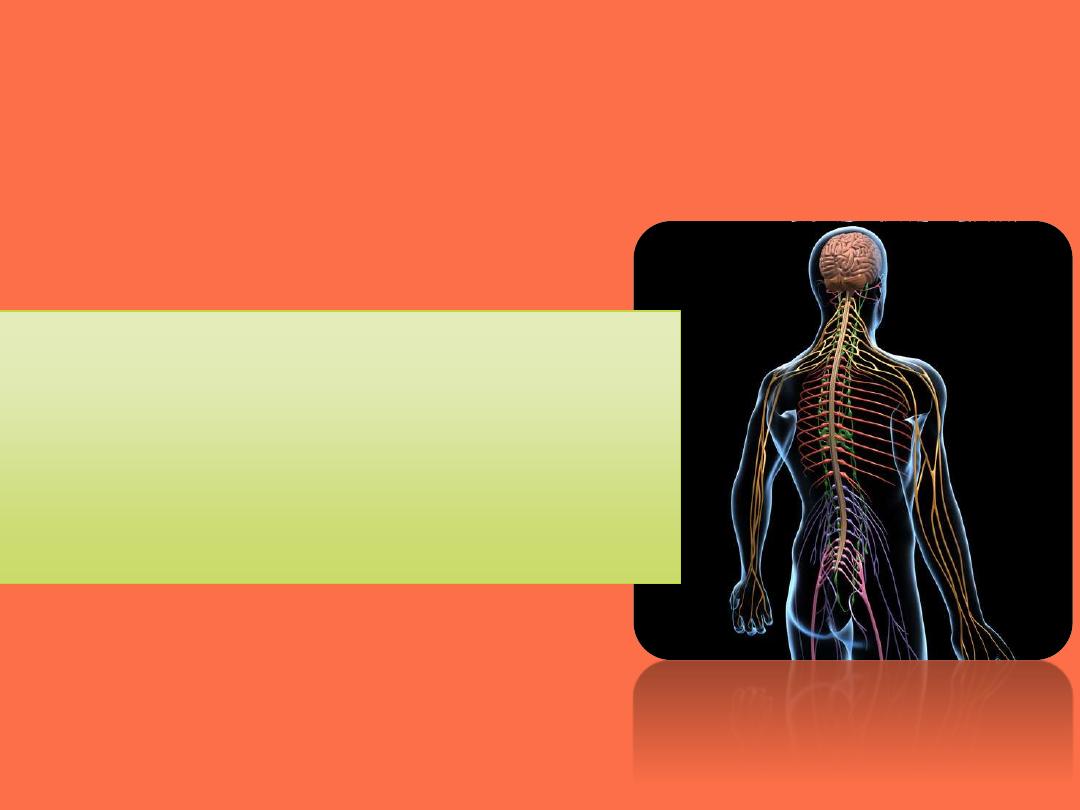
Lec.7
Done by:
the team work of ML
Nervous system

Objectives
• Analyse, define & pronounce the medical
terms relating to the nervous system
• Identify the major divisions of the nervous
system
•
Identify the terms that relate to disorders
and procedures of the nervous system
• Comprehension of English language

Student Duties
Read the lecture before attending
Print out the Formative assessment of this lecture and
hand it to the lecturer ‘solved’. It is your homework.
You should write on it your name, the date, your group
and the name of your lecturer.
A piece of advice: Take a look at the exercises of the
lecture before your actual reading, it will help you
design your strategy of studying.

NOTES
The methodology of the exercises in your formative
assessment in this lecture and in the other lectures
of the terminology module are similar to your
Summative exam.
If you encounter new terms not available in your
lecture, look it up using a dictionary or invest your
e-learning skills to look it up in the website .
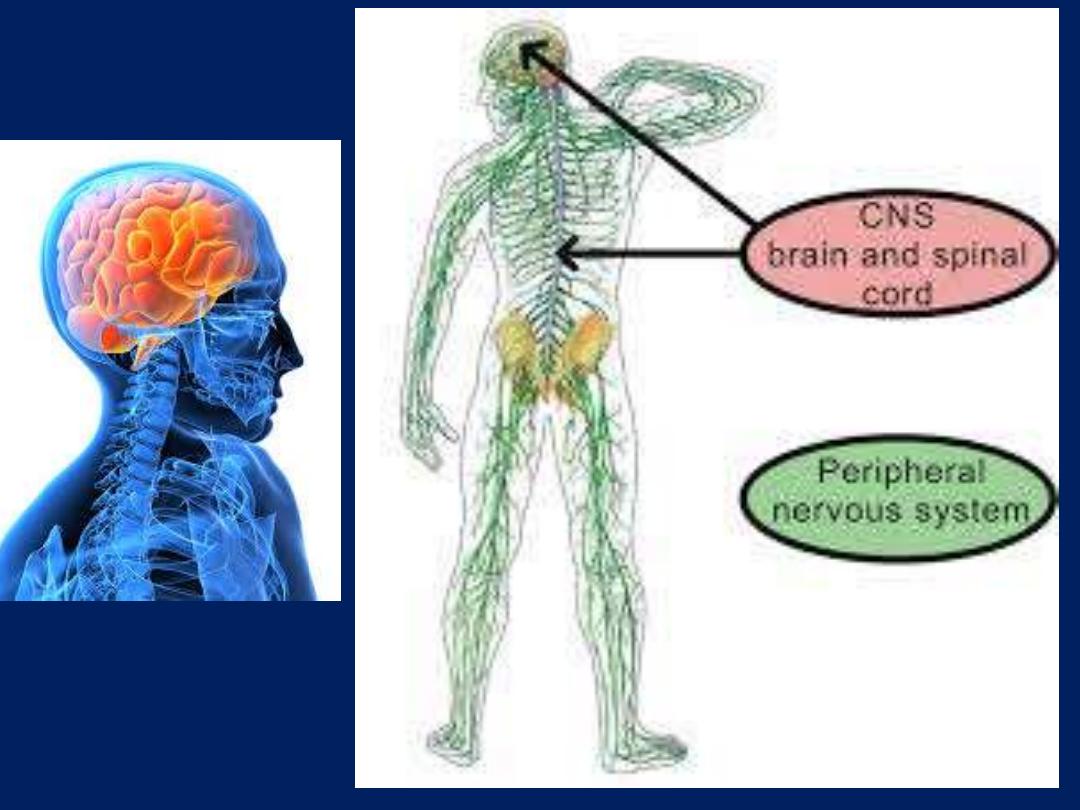
Nervous system
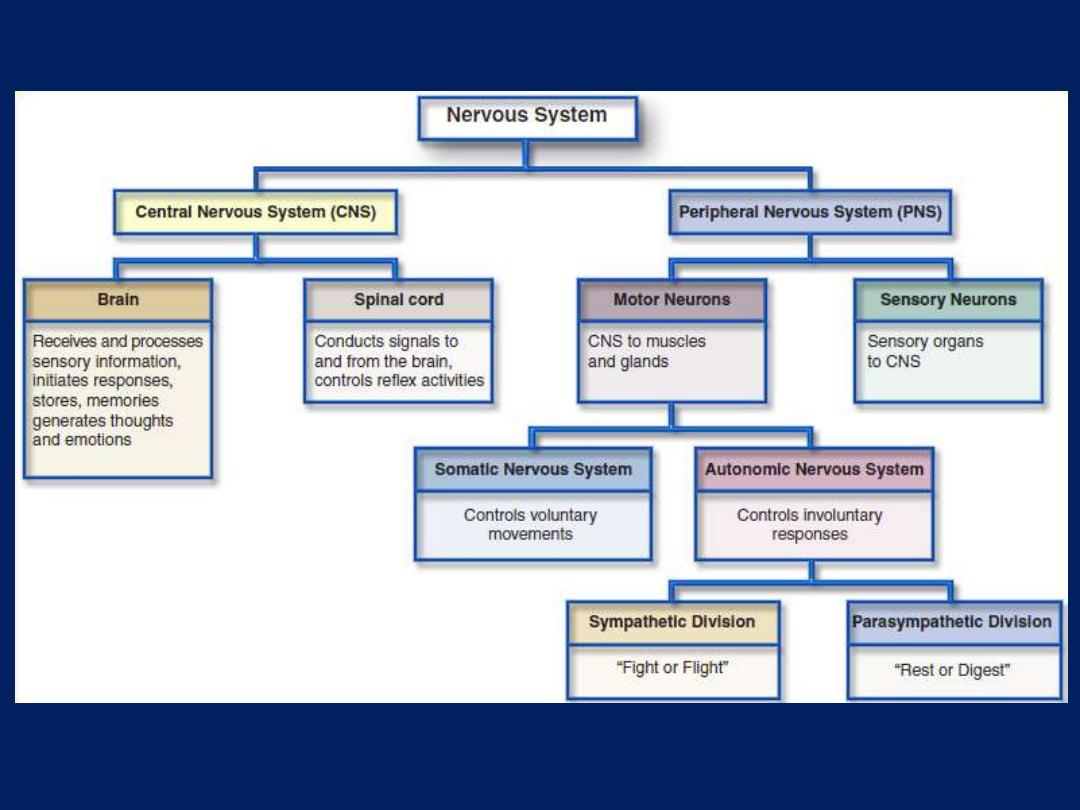
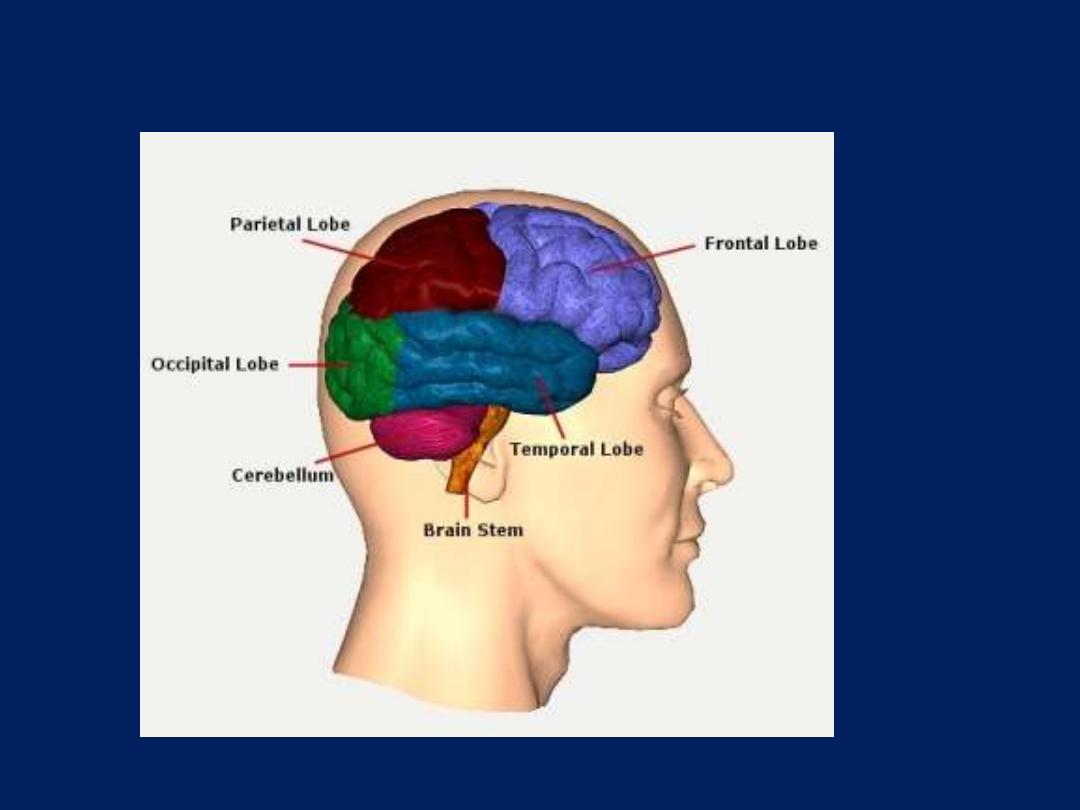
Lobes of brain
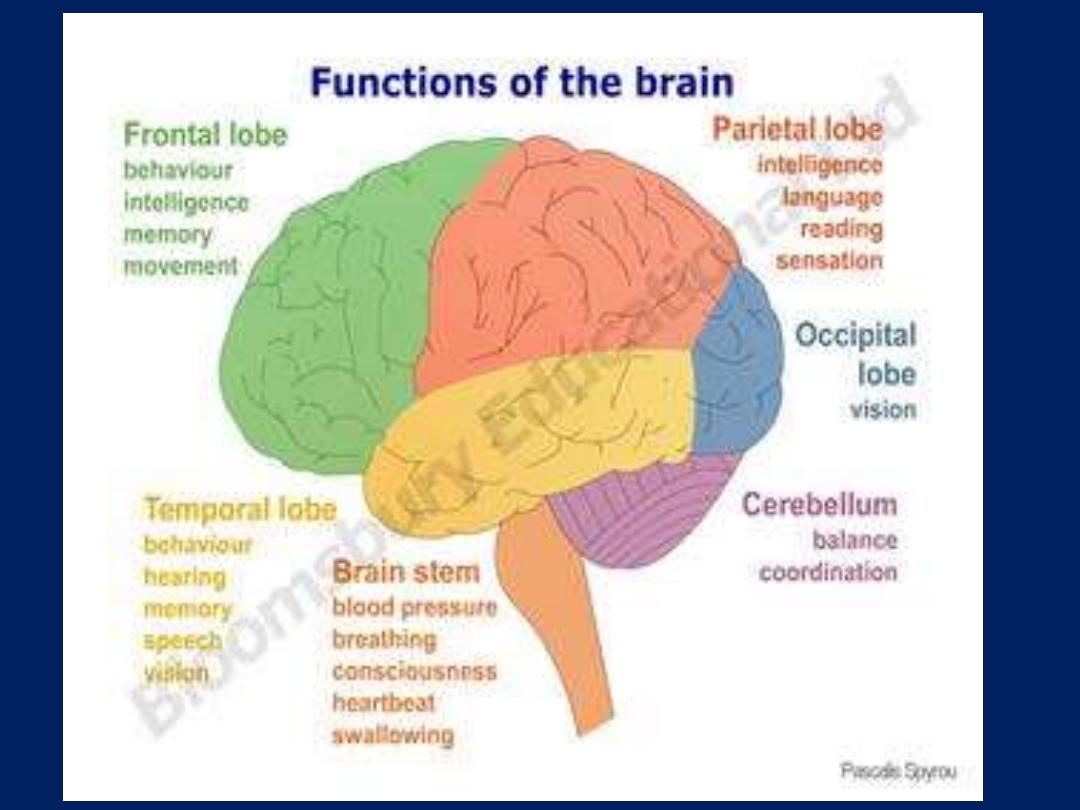

MEANS
TERMS
The parts of the PNS that carry messages
between the CNS and organs that function
autonomously
Autonomic nervous
system
From Greek word (arachne means spider)
the middle layer of meninges
Archnoid mater
Parts of brain control the functions include
(heart rate, breathing, body temperature.
Brain stem
Part of brain controls the skeletal muscles
cerebellum
Gray matter surrounding the cerebrum
Cerebral cortex
The fluid in and around the brain and
spinal
Cerebrospinal fluid
Largest part of brain ; control conscious
thought and stores memories
cerebrum
The outer meninges, the fibrous
membrane protecting the CNS
Dura mater
Inner layer of the meninges
Pia mater
Collective term for the archnoid and pia
mater
leptomeninx
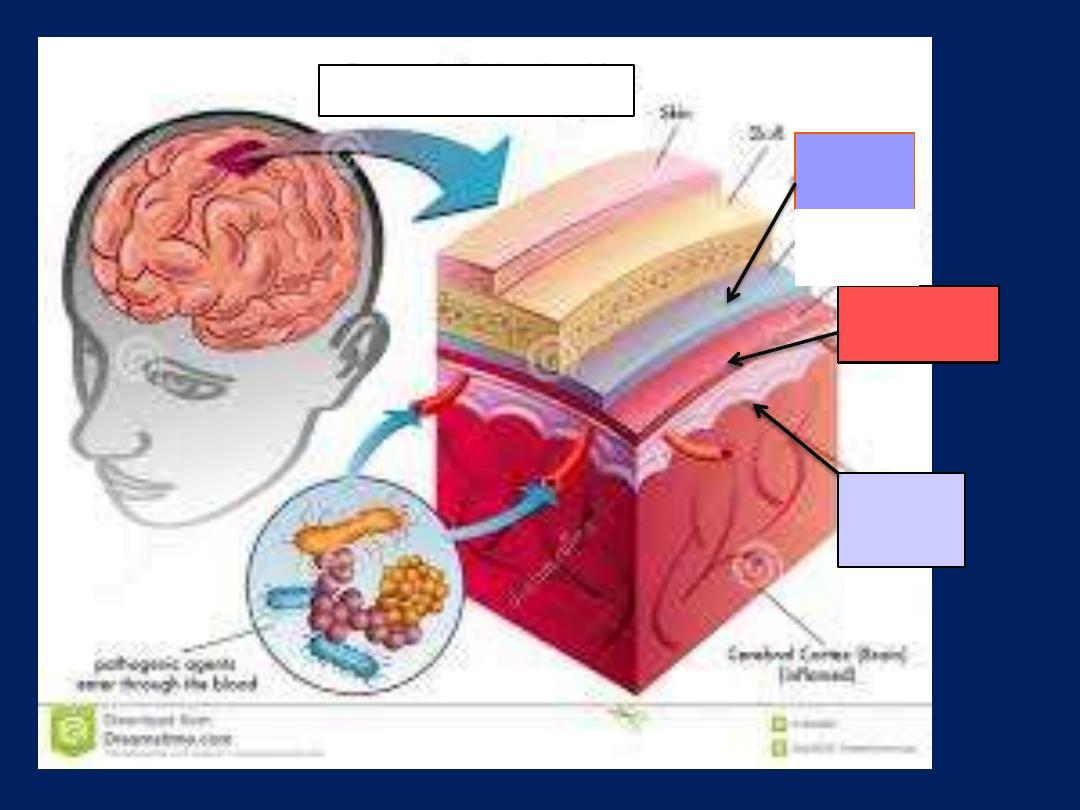
Dura
mater
Arachnoid
Pia
mater
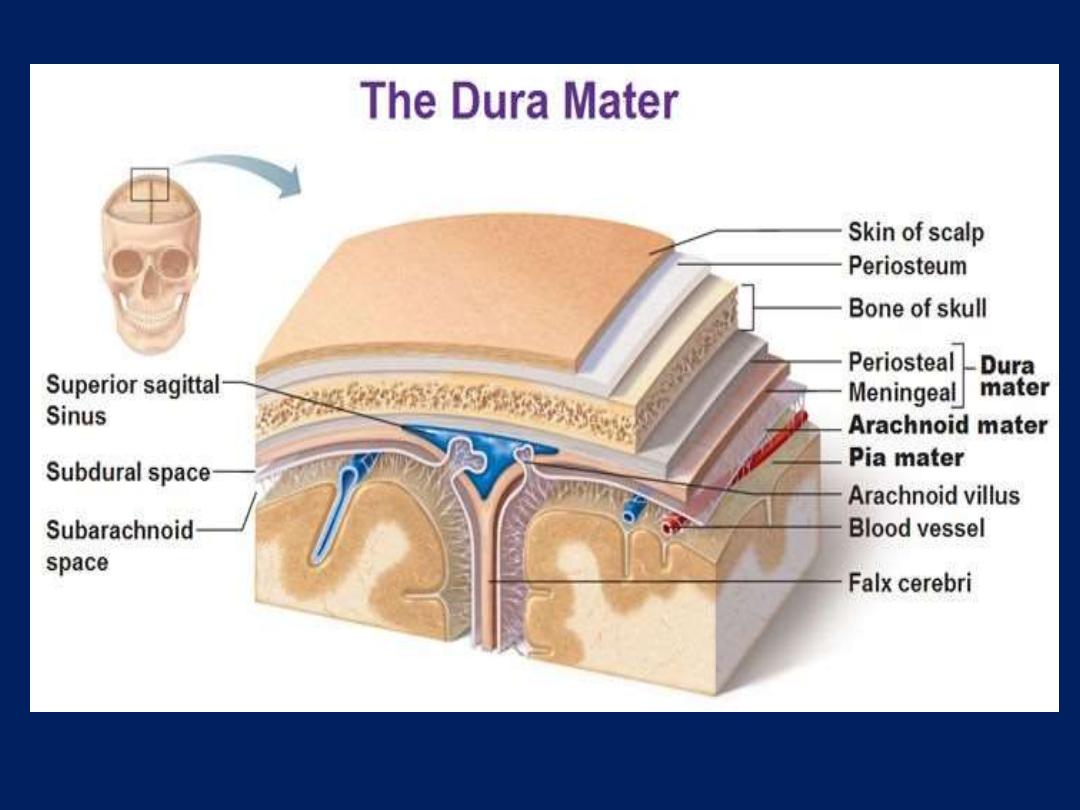
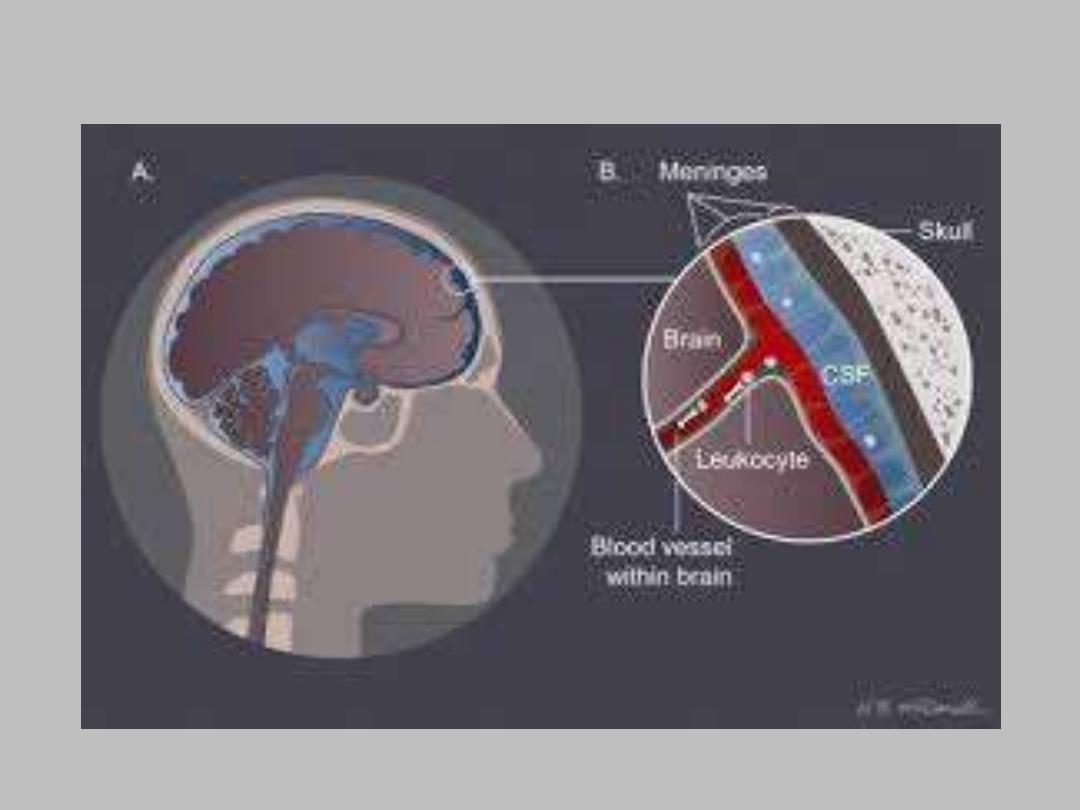
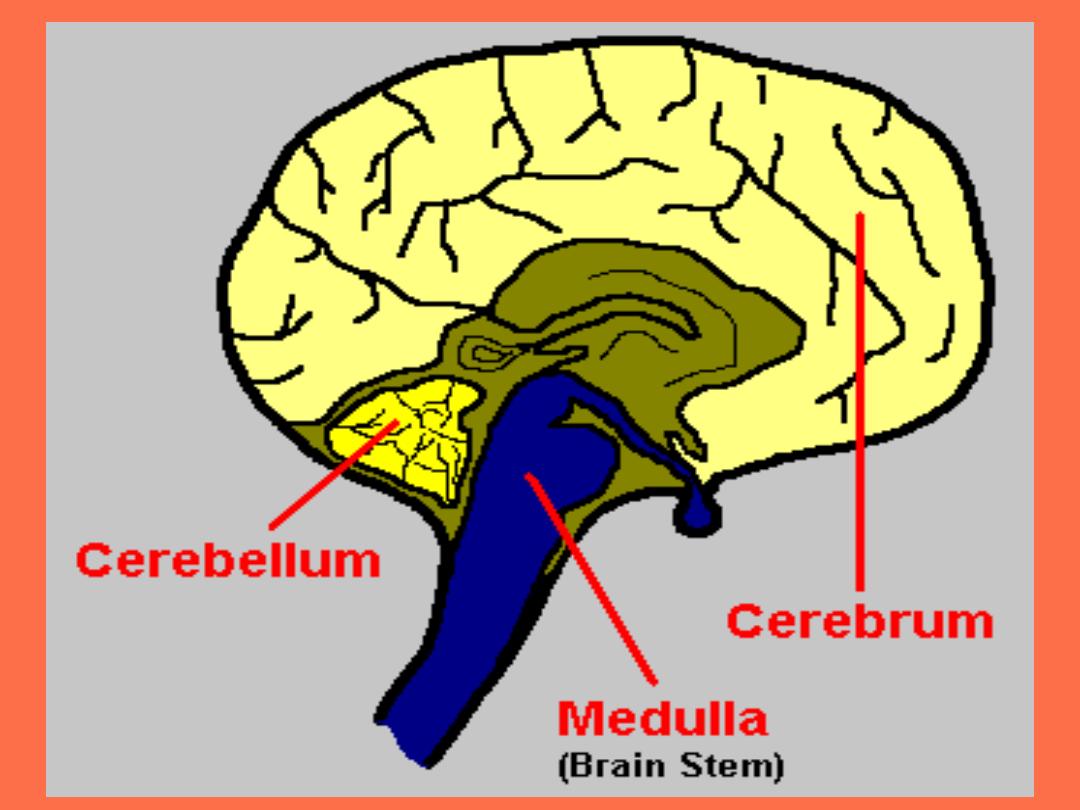

Word
Element
Refers to
Cephal/o
Head
Cerebell/o
The cerebellum
Cerebr/o
The cerebrum; also, the brain in general
Encephal/o
Brain
Hydr/o
Water
-mania
Suffix meaning “morbid attraction to "or “impulse
toward”
Meningi/o
A membrane
Ment/o
Referring to the mind
Myel/o
In connection with the nervous system, refers to
spinal cord and medulla oblongata

Word
Element
Refers to
Arachn/o
Spider
Cephal/o
Head
Cerebell/o
The cerebellum
Cerebr/o
The cerebrum; also, the brain in general
Encephal/o
Brain
Hydr/o
Water
-mania
Suffix meaning “morbid attraction to "or “impulse
toward”
Meningi/o
A membrane
Ment/o
Referring to the mind
Myel/o
In connection with the nervous system, refers to
spinal cord and medulla oblongata

Word Element
Refers
Neur/o
-phasia
-phobia
Psych/o
Spin/o
Nervous system
speech
Suffix meaning
“morbid or
unreasonable fear)
Referring to mind
Spinal cord

Term
Analysis
Meaning
Meninges
Mening/o
Three layer membrane
surrounding brain and spinal
cord
Neuroglia
Neur/o (nerve); from
the Greek glia (glue)
Cells within both the CNS and
PNS, which, although they are
external to neurons, from an
essential part of the nerve
tissue.
Neurotransmitter Neur/o (nerve); from
the Latin trans (across);
mittere (to send)
Chemical released by the
presynaptic cell that is then
picked up by the postsynaptic
cell to effect an action.
Pia matter
Latin words meaning
“tender mother”
Inner layer of the meninges
pons
A Latin word meaning
“bridge”
The part of the brain stem that
passes information to the
cerebellum and the thalamus to
regulate subconscious somatic
activities .
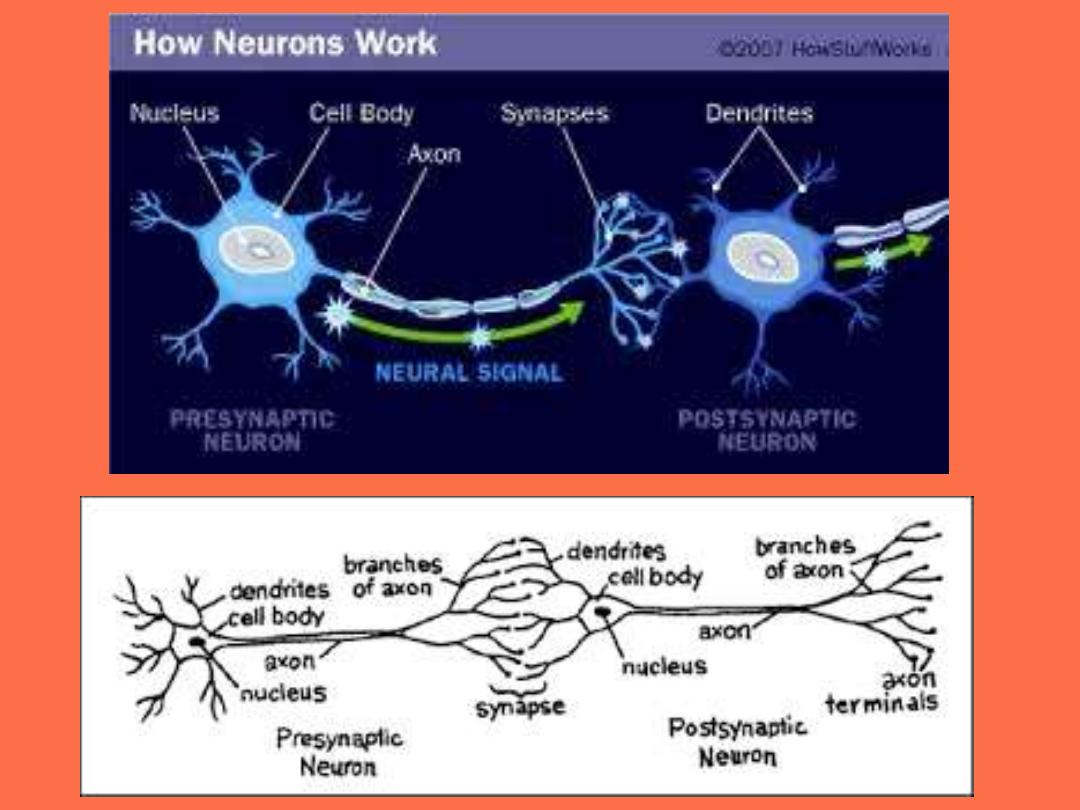
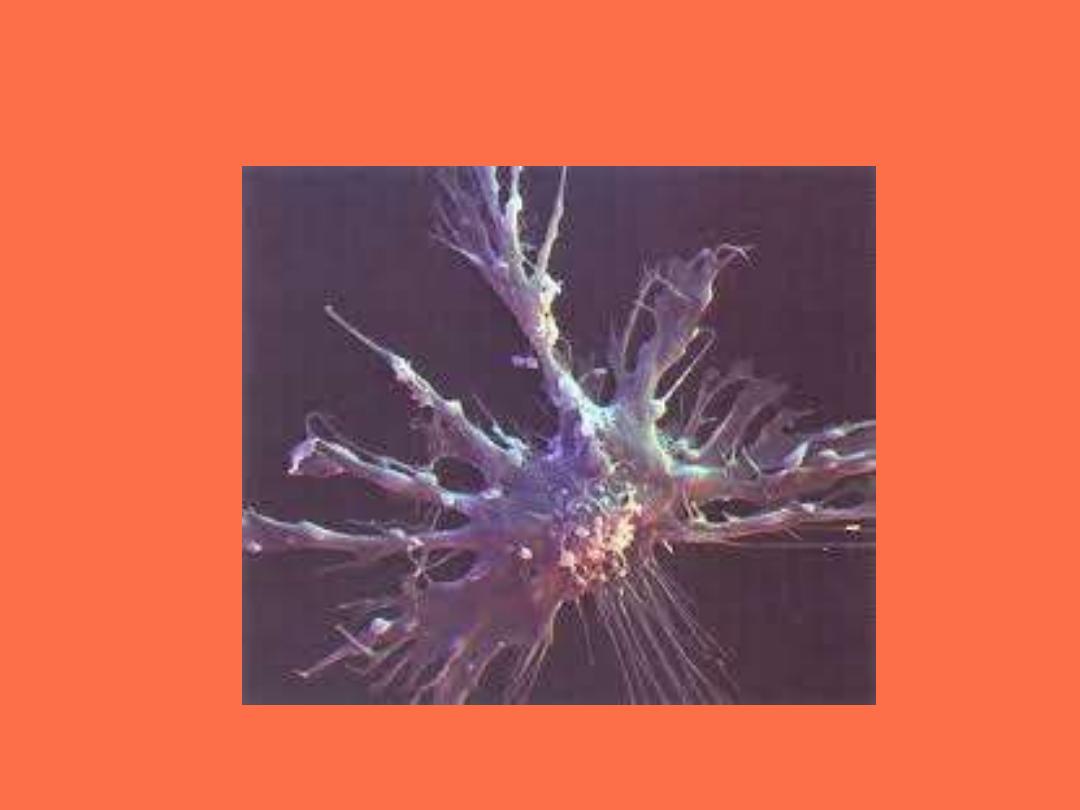
Dendritic Cells
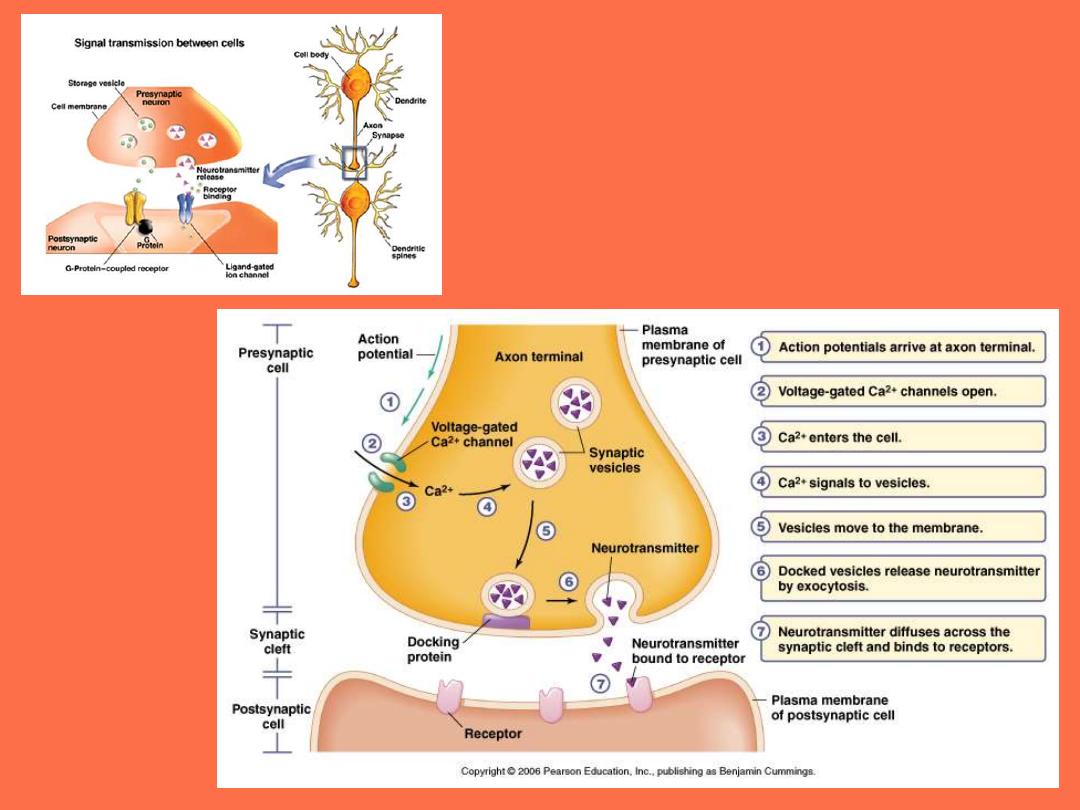

Terms
Analysis
Meaning
Psychomotor
Psych/o (of the
mind); from the Latin
motor (mover)
An adjective used to indicate
the relation between activity
psychic and muscular movement
Amnesia
A- (without); -mnesia
(memory)
Loss of memory
Aneurysm
From the Greek ana
(up) and eurys
(broad)
Localized dilation of an artery
due to vessel wall weakness
Aphasia
(uh-FAY-jhah)
a- (absence of); from
the Greek word
phases (speech)
Loss of speech
Astrocytoma
From the Greek word
astron (star); cyt/o
(cell); oma (tumour)
Star- shaped tumour that
usually develops in the
cerebrum; frequently in people
younger than 20 years old.
Bipolar disorder
Bi- (twice, double);
from the Latin polus
(the end of an axis)
Clinical course characterized by
mimic episodes alternating with
depressive episodes
Delirium
From the Latin word
deliro (to be crazy)
Impaired consciousness

Other disorders
means
disorders
A serious mental disorder characterized by
unreasonable suspicious or jealousy, along with
a tendency to interpret everything other
Paranoia
A fear of something that is not a hasard from a
statistical point of view
phobia
dizziness
vertigo
From (para mean abnormal, esthesi mean
sensation) numbness
paresthesia
Disease of the nerves in the brain due to
imbalance of dopamine
Parkinson disease
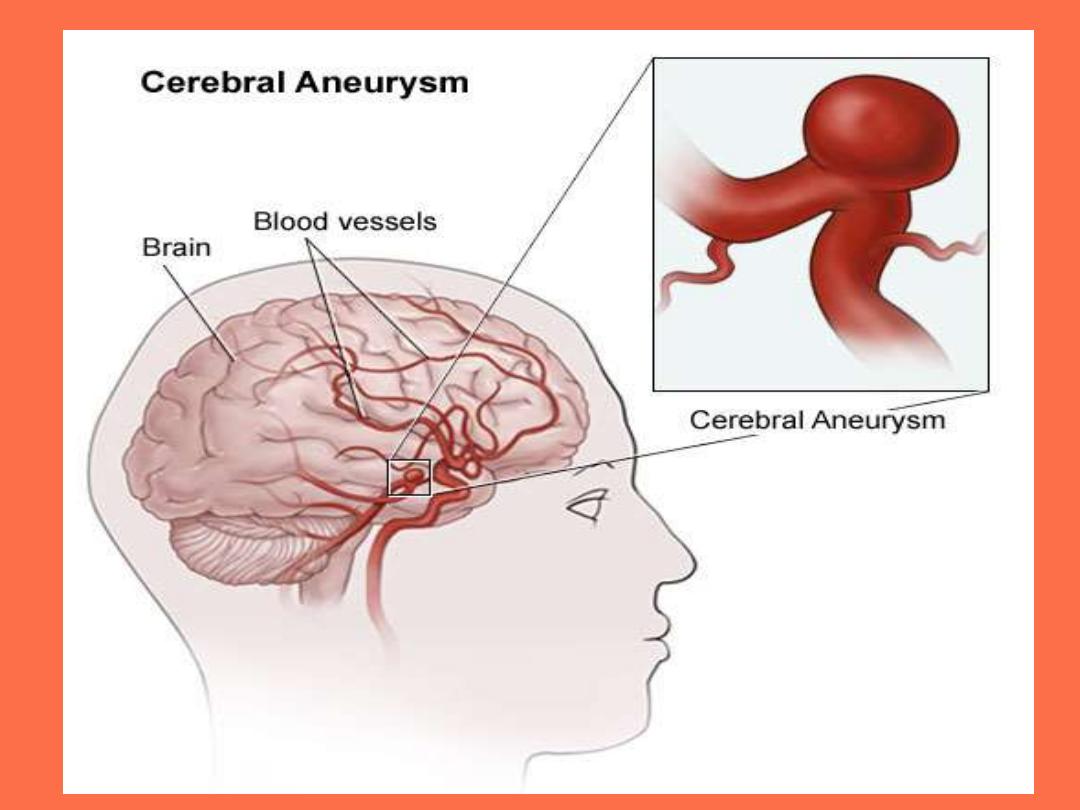
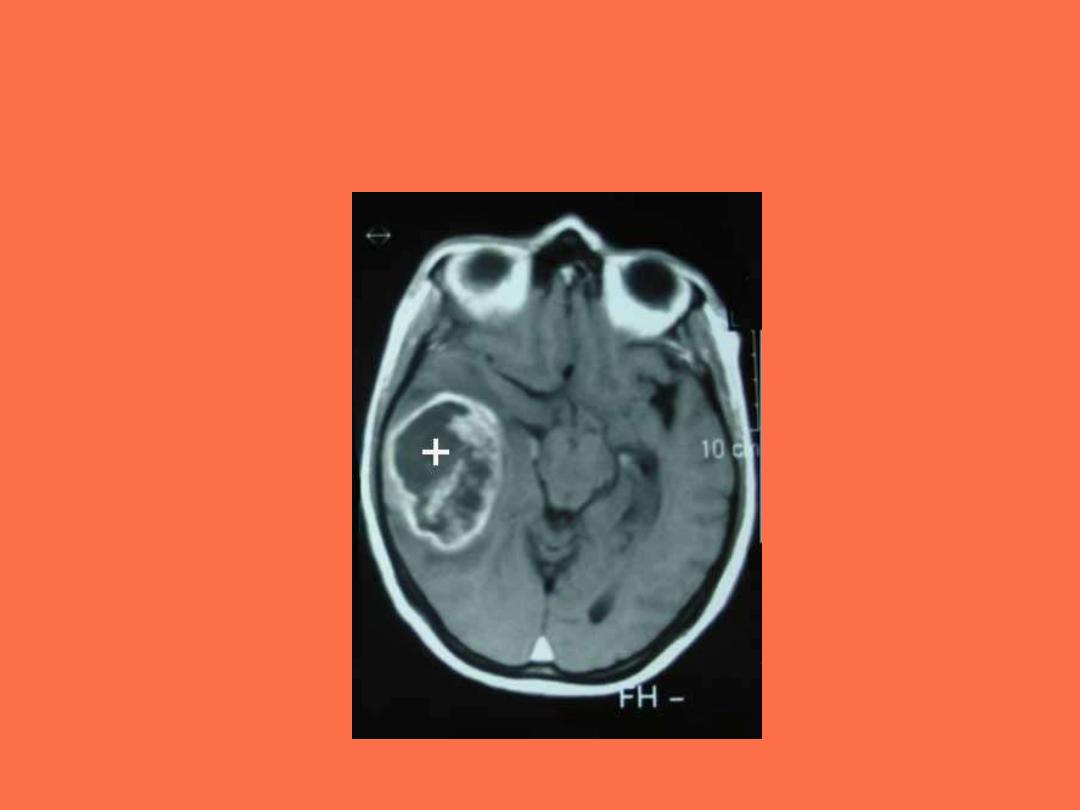
Astrocytoma

Bipolar disorder is characterized by
transitions between depression and
mania


Term
Analysis
Meaning
Hyperesthesia Hyper- (extreme or
beyond normal);
esthesi/o (sensation)
Abnormal sensitivity to touch
Poliomyelitis
Polio- denoting gray
colour); myel/o
(bone marrow or
spine); itis
(inflammation)
Inflamed gray matter of the
spinal cord
Psychosis
Psych/o (of or
pertaining to the
mind); sis (condition
of)
A serious disorder involving a
marked distortion of, or sharp
break from reality; general
term covering severe mental
or emotional disorders
Neurologist
Neur/o (nerve);-
logist (practitioner)
a medical specialist who
treats nervous system
disorders

Neurology
Neur/o (nerve); -
logy (study of)
Medical speciality dealing
with the nervous system
Neurosurgeon Neur/o (nerve); from
the Greek word
kheirourgos (working
or done by hand)
Surgeon who specializes in
operation on the nervous
system
Psychiatrist
Psych/o (of or
pertaining to the
mind); iatr/o (of or
pertaining to
medicine or a
physician); -ist (one
who specializes in )
A medical doctor who
specializes in the diagnosis
and treatment of
psychological disorders.

, She is theDirector of
Creative Development of Shannon design Company since
2004has done a great deal of personal work to shed light
on the complicated and often misunderstood issue of
mental illness. Through her art she has worked to
express the pain and confusion experienced by families
who have a member with a mental illness.

Term
Analysis
Meaning
Myelography
Myel/o (bone marrow or
spine); graphy
(process)
Radiography of the
spinal cord and nerve
roots
Neuroplasty
Neur/o (nerve); -plasty
(repair)
Surgery to repair a
nerve
Antianxiety agent
Anti- (against); from
the Greek word angho
(to squeeze, embrace
throttle)
Drugs used to suppress
anxious and relax
muscles
Anticonvulsant agent
Anti- (against); psych/o
(of or pertaining to the
mind); -tic (adjective
suffix)
Drugs used to decrease
seizures activity
Electroencaphalography Electr/o (electric);
encephal/o (brain);
graphy (process of
recording)
Record of the electrical
potentials of the brain
Hypnotics
From the Greek word
hypnotikos (causing one
to sleep)
Drugs used to induce
calming effect or sleep
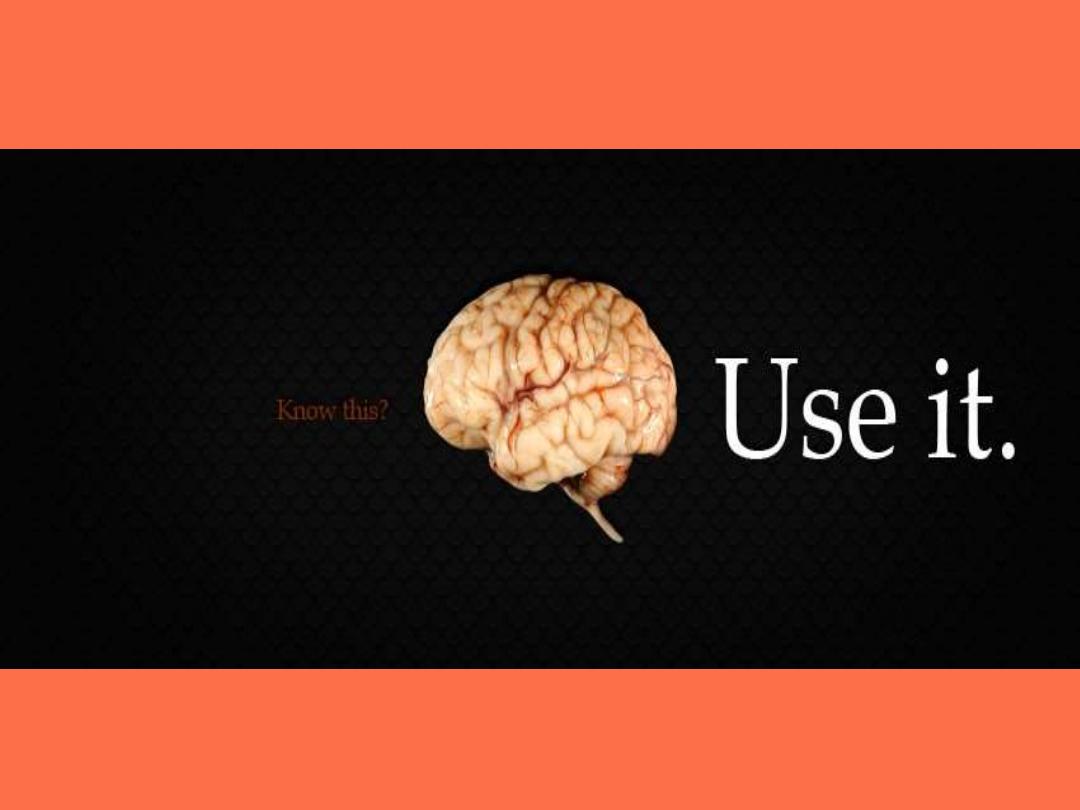
Thank you
